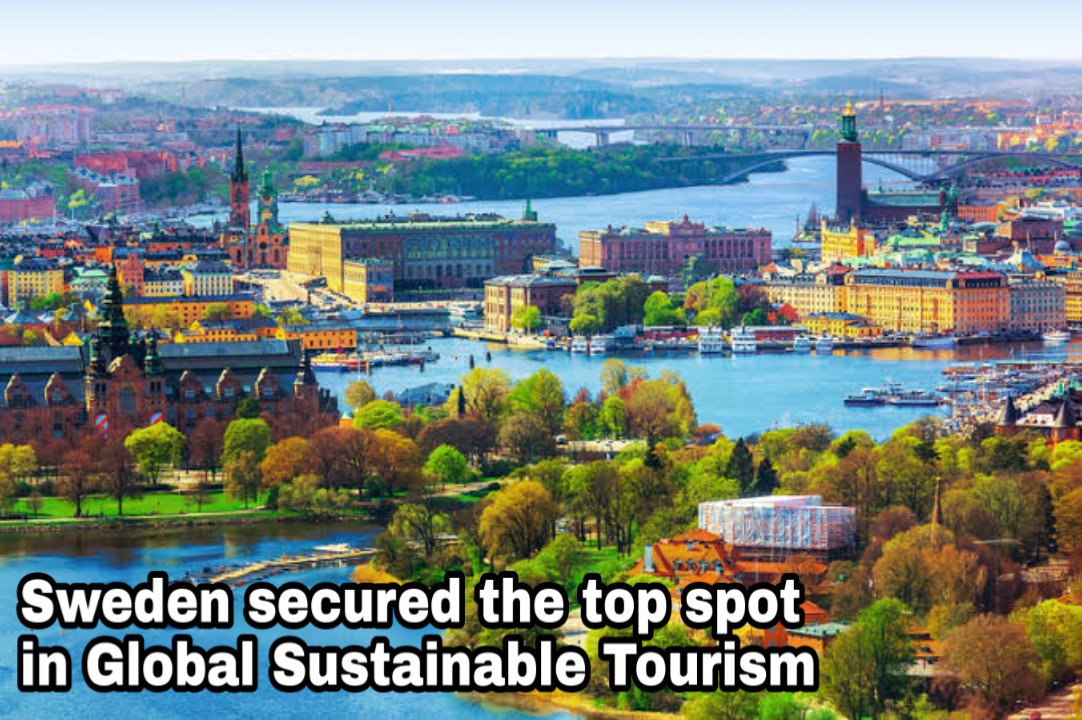Sweden Secured The Top Spot In The Global Sustainable Tourism Among The 99 Nations

In a recently assessed report, Sweden was named as the most pre-eminent country for Global Sustainable Tourism prevailing Finland and Austria who followed it in the ranked list of 99 countries.
“Sweden is a pioneer in lifecycle assessment research which is critical to understand the full impact of consumer behaviour and consumption patterns,” the head of travel at Euromonitor International, Caroline Bremner, pointed out in this regard.
Euromonitor International emphasized that the sorting was carried out based upon seven pivotal factors of sustainable tourism namely, Environmental sustainability , Social sustainability, Economic sustainability,
Risk, Sustainable demand, Sustainable transport, Sustainable lodging.
Euromonitor International did analysis over worldwide . “One year on, travel bans, social restrictions, and new health protocols continue to disrupt the travel and tourism industry. The global pandemic highlighted clear flaws in traditional volume-driven tourism models which are no longer fit for purpose in the new pandemic era,” the company highlighted.
Sweden is the largest country in Northern Europe and overall the fifth largest country in Europe. The capital city is Stockholm.The Population of Sweden is 10.4 million. In 2014, Sweden celebrated 200 years of peace, breaking even Switzerland's record for peace. Stockholm, the capital of Sweden, is known as one of the most inclusive and welcoming cities in the world. Recently in 2021, a published report regarding sustainable tourism showed that 66.4 percent of consumers worldwide want to embark a healthy influence on the environment through their daily chores.
USA was positioned on the 35th place, followed by the United Kingdom in 40th place. Japan and China were placed on 53rd and 56th respectibely while India end up on the 98th spot.
The Airports Council International Europe (ACI) will ensure that airports can benefit from €672.5 billion EU Recovery and Resilience Facility (RRF) to fund their sustainability plans.
“There is globally a clear change in mindset and resistance in returning to a volume-driven travel and tourism model. Instead, stakeholders are rallying together to ‘build back better’ through value creation from sustainable tourism. As momentum grows in the run up to COP26, consumers, travel brands, destination marketing organisations and governments continue to align to avert the climate emergency,” Bremner added.
Travel
Travel
Sweden
Pandemic
Top Spot
Tourism










.jpg)



